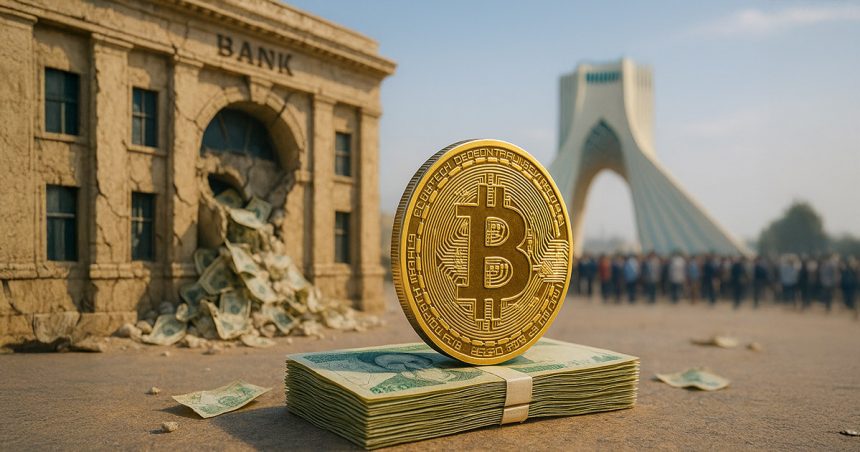
Iran's financial system has just suffered one of the most dramatic collapses in years. The country's central bank has declared Bank Ayande, one of the country's largest private financial institutions, bankrupt and its assets absorbed by the state.
Ayandeh Bank, which was founded in 2012 and has more than 270 branches across the country, had losses of $5.2 billion and debts of nearly $3 billion, according to Asharq Al-Awsat. State-owned Meribank is now absorbing the assets, promising depositors that their savings are “safe.” But Iranians have learned to temper such assurances.
According to Reuters, Iran's economy is currently reeling from simultaneous hyperinflation and a deep recession, further strained by the backlash from UN sanctions and the collapse of the rial. Lines quickly formed outside the shuttered Ayandeh branch in Tehran, reenacting scenes from past crises.
For ordinary Iranians, the real fear is not business loss, but access. Insured deposits in Iran are capped at just 1 billion rials (about $930), and payments can take years to process. Those who hold even more may never see that money again.
Familiar stories of vulnerability
Iran is not alone. Central banks around the world have intervened to ease financial turmoil, but it is often too late for depositors who fall into the wrong financial institutions. In the United States, the shocking failures of Silicon Valley Bank, Signature Bank, and First Republic Bank in 2023 were the largest mass bankruptcies since 2008. Thousands of startups, small businesses, and uninsured customers were thrown into disarray, even though the FDIC and Treasury guaranteed their deposits.
According to a Morningstar report published in October 2025, U.S. regional banks continue to show signs of increasing financial stress, despite increasing reserves and deposits after the 2023 banking crisis. Delinquencies and loan defaults are on the rise due to persistent inflation, rising borrowing costs, and losses associated with low-income borrowers.
Although the balance sheet is stronger on paper, confidence remains fragile. Market volatility this quarter sent bank stocks tumbling until they partially recovered with better-than-expected earnings. Analysts are now predicting a new wave of local bank mergers and acquisitions as larger companies move to absorb weaker rivals.
Ayandeh Bank's failure follows years of poor governance and opaque financing of politically linked projects, including the debt-ridden Iran Mall megacomplex. More than 90% of the bank's funds reportedly went to affiliated companies and were never repaid.
Ayande Bank claims unseizable funds
What makes these crises rhyme is not geography or ideology. That is the fragility of trust. Whether in Tehran or San Francisco, savers face counterparty risk every time they deposit money into a system that relies on state bailouts.
Bitcoin completely flips that script. Just because a central authority doesn't exist doesn't mean we should trust it. There are no banks that will freeze your funds, and no government that will quietly grow your savings. We operate across borders and politics, and operate freely in places where traditional finance cannot. When a bank fails, the promise behind the account balance disappears overnight. However, if you hold Bitcoin yourself, there is no counterparty, only calculations. And unlike governments and banks, math never breaks its promises.
The failure of Ayande Bank is not a local tragedy. It's a worldwide warning. Wherever financial repression occurs, bank failures, capital controls, and confiscation eventually follow. For millions of people watching their savings evaporate through no fault of their own, Bitcoin is no longer a speculation. It's an insurance policy for the system itself.

